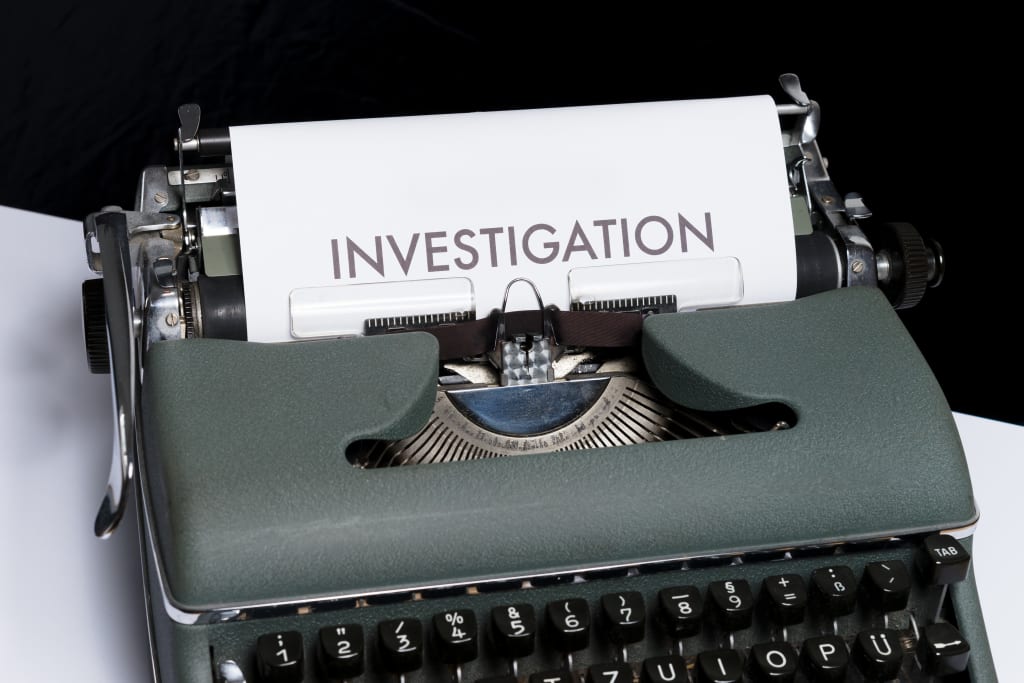How Do You Measure "Leadership"?
The Bad Science Of Measuring "Improved Leadership" And What Works Significantly Better

Everything that can be improved should be measurable.
This is true even in improving our Leadership.
However, not all measures are helpful or useful.
Example - How Some Measurements Are Useless
As a way to prove this, let's use an example of the molecules that make up water - H2O.
I can put a bunch of H2O molecules in a box and put that on a scale to weigh it.
The weight of the H2O molecules "is" a measure, sure.
But what does it actually tell us?
Are the H2O molecules a liquid, solid, or gas?
The weight will change depending on the form!
Not to mention that just about anything we use H2O in isn't measured in weight.
More often we use measures like cups, teaspoons, or even the number of ice cubes.
The weight alone doesn't tell us much that is useful on its own.
This is also true in Leadership.
There are often measures used to "explain" the success of a program, such as feedback surveys, 360° assessments, or Self-Reported Results.
But do they really work?
According to the research - No!
Leadership Development fails 80% of the time (with only "varied" success the other 20% of the time).
Yet, we do have "measures" - so what is the problem?
The Problems With Most Leadership Assessments
The largest problem with most Leadership Assessments is that they are highly biased in their designs, and made worse due to either marketing or our own personal biases.
Let's first take feedback surveys.
➼ Feeback Surveys
There are a few problems with these.
The first is when they are given.
Most of the time feedback surveys are given right at the very end of a short program.
Most Leaders haven't actually had any time to implement anything between when they "learned" and when they take these surveys.
Science has shown that it generally takes 66 days on average to establish a new habit.
Since most Leadership programs are "skill" based, they require you to take the skills learned and turn them into habits.
But no one ever takes a feedback survey 2 months after they learned Leadership Skills.
This ties into the next problem - the "celebration high".
Whenever we complete courses, there is some form of celebration.
Sometimes it is the instructor simply telling you how "amazing" you are and how far you've come in such a short period of time!
Other times you are given a certificate, a badge, or some other mark of recognition for your "spectacular" contribution to your future!
Or maybe all of your classmates get together to literally celebrate your accomplishment as a group!
In any of these cases, you get a form of neurochemical "high" that makes you feel SO good!
That is the exact moment you are asked to give feedback!
You are now literally in an altered state of mind being asked to give "honest" feedback - except it is literally impossible to do!
The "high" makes all of your answers skewed in the positive, and only to the benefit of the instructor.
Two months later, you discover that in the long term, the program didn't really help, but you've already given feedback.
Another issue here is that most feedback questions are skewed to "direct" you to give a positive answer.
The way that it is asked leads to you thinking about the program "more" positively, and focus only on what you thought was good.
You then give a better answer than you may have otherwise because you were "directed" to do so without knowing it!
This then gets exasperated because the person giving the course now picks and chooses only the "best" positive reviews in their marketing.
They gain a huge list of people who have had so many "incredible" results, that it "must" work.
Mix this with the bias within the industry that if it "doesn't work for you" then it is simply because "you" aren't doing it right.
The "proof" shows that!
It's all an elaborate lie, unfortunately, designed in a meticulous way to exploit so many different aspects of our psychology.
➼ 360° Assessment
Now, 360° Assessments "seem" like they may be a better measure of "success".
In some ways they are - they allow you to gain more perspectives, usually from different levels of individuals around you.
However, these too are not perfect ways to measure.
One reason is that even though they are usually "anonymous", doesn't mean they "truly" are.
People have tendencies in how they write, how they talk, and even in their opinions of people.
Most people can actually distinguish who said what, even in "anonymous" results.
We all "know" this deep down, so often we will end up skewing our answers in an attempt to "not get discovered".
This then leads to us receiving less-than-honest results.
The "bad" results will be skewed more positively, and the positive results will remain positive (because when we are happy, we make sure everyone knows).
However, this ends up becoming worse because our minds psychologically will only want to accept the "positive" responses.
Of course, the people who say good things are "right", and the people who say negative things just "don't understand" or are "bad employees" or "don't appreciate" everything we do as Leaders!
We all know this isn't really true 90% of the time, but our minds will convince us otherwise in an effort not to change.
Change is hard, it requires energy (Mg-ATP), and our brains are designed to reduce energy expenditure as much as possible.
So if there is any feedback that says, "We're already right and don't need to change", then that is what the brain is going to focus on.
It doesn't make it "true" in the long run, but it's what we believe at the end of these assessments.
After we come to these "great" conclusions about ourselves, we are then asked to write a review and have the same problems as we had with Feedback Surveys.
➼ Self-Reported Results
The final primary category of assessment is Self-Reports.
You typically see these with a "before" assessment and an "after" assessment, which are then typically compared.
There are a few problems here though.
The first is our own biases based on "when" we took each assessment.
We usually take a course because we know something is wrong - so when we are asked to report, we focus on what is wrong.
This leads to us having negatively skewed "before" assessments.
At the end of the program, we have a couple of biases working against us.
Every single one of the biases from the Feedback Survey also applies here.
Along with this, we have this problem - there is often a lot of "effort" put into learning in these programs.
We HATE to put effort into anything and feel like we didn't "get" anything for all that effort.
Due to this, we will "convince" ourselves of a bunch of positive things from all that effort we put in!
But if we have to "convince" ourselves, it didn't "really" work.
However, it is too late, we have submitted the "after" survey, and it is skewed in the positive direction now.
With a "negative" starting skew, and a "positive" ending skew, the comparison shows "major" differences.
In reality, there weren't really many differences, the gap was due to skewing.
This is made worse in that those who created the assessments typically pick and choose ONLY what had the greatest positive differences, and ignore any results that didn't change and any that got WORSE!
How To Measure Instead
The problem with all of the previous assessments is that they can easily be skewed to show something that is completely false.
So, if we want to show our Leadership is improving, but can't rely on these "traditional" methods - what do we do?
The answer is simple - find measurements that can't be skewed by our biases.
I have found that this is best accomplished through different measurements of Stress, as Leadership constantly forces us to face different types of Stresses.
This means that improved Leadership should lead to improvements in HOW we handle stress!
This then leads to different ways the body responds to Stresses which won't be skewed by any psychological biases.
We also have many different ways to measure stress impact over time which allows us to get more accurate assessments of improvement!
These are some that I have trained in, use in my own life, and use with my clients:
➼ Hair Test Mineral Assessments
➼ Blood Tests
➼ Heart-Rate Variability
➼ Heart Coherence
➼ BOLT Score
➼ Physical Assessments (I use OS and MovNat)
This isn't an exhaustive list, but they go to show there are many different (and more accurate) ways to assess if your Leadership is Improving!
How will you prove that your Leadership is improving?
About the Creator
Cody Dakota Wooten, C.B.C.
Creator of the Multi-Award-Winning Category "Legendary Leadership" | Faith, Family, Freedom, Future | The Legendary Leadership Coach, Digital Writer (500+ Articles), & Speaker
Enjoyed the story? Support the Creator.
Subscribe for free to receive all their stories in your feed. You could also pledge your support or give them a one-off tip, letting them know you appreciate their work.






Comments
There are no comments for this story
Be the first to respond and start the conversation.